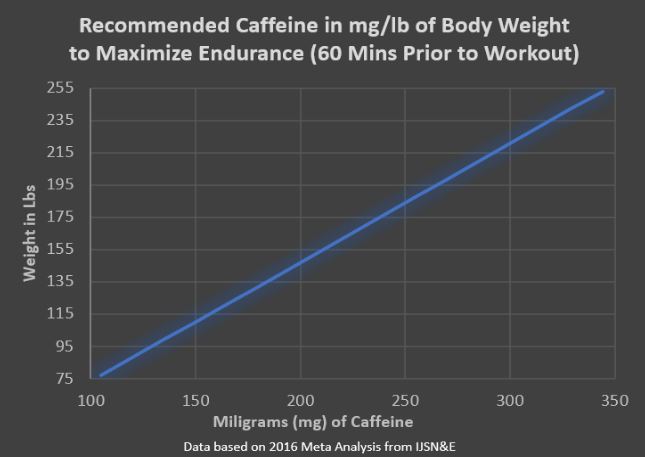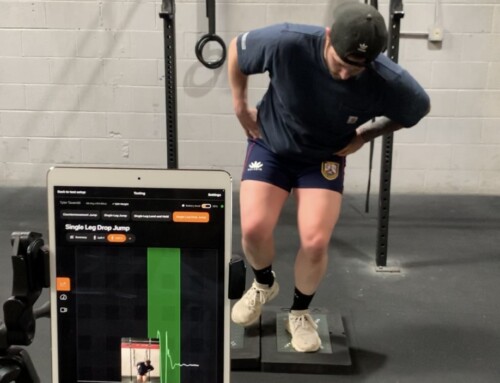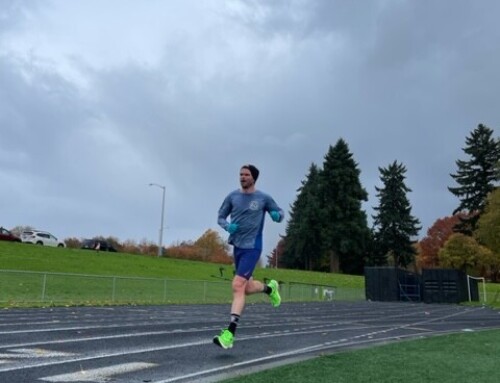Coffee, Caffe, Kahve, Kafe
No matter how you say it, coffee is everywhere. Portland, Oregon, is the third most caffeinated city in the U.S. with about 737 coffee shops(1). This is likely because coffee is the nectar of the gods (well it’s true). Even though that statement is NOT science, there is an absurd amount of science that focuses on the benefits and detriments of coffee. The British Medical Journal (BMJ) just compiled over 200 studies into a meta-analysis that says coffee is good for you within reason(2). It says to drink 3-4 cups a day and your high school sweetheart will profess their undying love for you, you’ll win the lottery, and you’ll reap the benefits of a bunch of health benefits we’ve all heard a million times. They also make recommendations for people with risk factors for disease. It’s all great info, but what this study-to-end-all-studies doesn’t really address is how to drink coffee like a professional. They missed all of the people who care about using their brain and bodies with optimal performance. They missed the people who don’t fit in the bell curve this monstrous study focuses on. Let’s talk about optimizing coffee intake for both the BRAIN and the BODY.
Coffee and the BRAIN
Most brainiacs get up and either home brew their coffee or snag some on their way to work. Cup of Joe to go. People who drink coffee to stay alert for work or school tend to get their coffee on ASAP. This morning routine is pretty consistent for most nerds. I’m not hatin’, I’m nerding as I write this. The problem with this is that we are MOST ALERT in the mornings ALREADY(3). I’ll get to you if you’re not a “morning person”, don’t fret. For most people, we are alert in the mornings because a hormone called CORTISOL is dancing in our blood at around 7am-9am. In fact, cortisol is PEAKING at this time. Then it has a lower peak again at around noon, and once more with a lower peak at around 5pm-ish. As we wake up cortisol helps us access stored energy in the form of glycogen in our liver and muscle so we can move around enough to splash water on our face, and drag our corpses into the office or to school. The problem is, when we drink coffee at this time, we are not only wasting an “alert time”, we are also dumping even more energy into our system that already has enough alertness to operate heavy machinery with great haste. This waste leads into resistance which we’ll get to below.
My suggestion for the BRAIN
Coffee session #1 at 9:30am and Coffee sesh #2 at 1:30pm. This optimizes alertness by utilizing the body’s natural circadian rhythm in step with coffee. Each session 8-16oz. Sesh #2 is optional. If step #2 is not achieved, you probl’y should’a done-gone with 20oz instead.
How much though? Based on the above information from over 200 studies on coffee I’d be a Sillysaurus to recommend something different than 3-4 cups a day. Caffeine in one 7oz cup of coffee is around 80-135mg(4). Another study claimed the “Perfect” amount of coffee was around 3 to 5 cups, and yet another study that I’ll reference later that showed resistance to caffeine quantities with more than 300mg over time. Use your noodle. If you’re fatigued, and craving more and more, back off the Java a smidge.
I’m NOT a morning person! What about me? I recommend looking at the other puzzle pieces: Sleep patterns, exercise routine, hydration (coffee can dry you out), breathing, meditation, micronutrients like Vitamin D etc. (based on body composition fat content), and then get those cortisol levels checked. Hallmark symptoms of elevated cortisol levels include general fatigue, and tiredness in the mornings as well as overuse of supplements like caffeine to compensate. This can also lead into a cycle of fatigue. These are just suggestions. My ultimate recommendation is to sit down with a knowledgeable DC, ND, MD, or Dietitian and evaluate your intake and output, run diagnostics, and address your baseline energy levels first. After you address your baseline add coffee as we’ve discussed above.
Coffee and the BODY
I can’t tell you how many times I’ve walked up to Spinal Tap, the campus coffee shop, and heard someone say, “Can you just hook it up to my veins?” This is of course hilarious. The problem is that this mindset may be misleading people into thinking that more is always better. According to a systematic review of 10 studies published in International Journal of Sport Nutrition & Exercise in 2016, there is moderate evidence that ingesting 3mg/kg of coffee 60 minutes prior to endurance exercise may have significant benefits in endurance activities(5). Although guzzling more than 3mg/kg of coffee seemed to increase performance the increase was negligible. People who drank as much as 8.1mg/kg had very similar performance numbers to around 3mg/kg (~ 1.36mg/lb) of body weight. 8.1mg/kg was the upper limit for improvement. Use the graphic below to find your weight on the left and trace it over to the milligrams below for a good baseline using 1.36mg/lb.

Recommended Caffeine
Based on research around caffeine resistance, this peak performance could be altered with caffeine oversaturation(3). Even as much as 300mg after 5 consecutive days can contribute to a cycle of resistance that increases the perceived need for caffeine. SO, if you’re gonna race try taking it easy the week of, or a few days before (on your caffeine intake), and then hit it hard on race day. 60 minutes is ideal for physiological efficiency, but also because you’re likely gonna need to make a pit stop prior to lining up at the gate. In a pinch, it is likely that overnight abstinence(3) is partially sufficient to overcome tolerance in the brain. At the bare minimum take a day off of caffeine before race day.
THINGS TO KEEP IN MIND about WORKING OUT and COFFEE
This information is specifically for people doing endurance type activity. There is mixed evidence that caffeine is effective at increasing performance when it pertains to strength related activity and I’m not confident enough to say it improves strength directly. Caffeine does free up glycogen stores and liberate glucose to be used for cell metabolism and use in the brain. It can contribute to increased fat burn, and overall metabolism improvements, improved mood to keep on keepin’ on, and as we’ve said it can increase alertness which is beneficial for performance in general. The Meta-Analysis from BMJ also confirmed that their 3-4 cups per day regimen reduced risk for cancer, neurological conditions, metabolic disease, and liver problems. Preventing disease promotes longevity in movin’ that body.
Caffeine and HRV
This juicy little nugget I found out there in the depths of clinical trials studied caffeine’s ability to enhance Heart Rate Variability, or HRV. If you haven’t heard about HRV you’re not alone. HRV measures the unique variability your heart beat has between beats. This is a measurement of change over time. If there isn’t much variability in the heart rate between beats, or it’s more constant, then your HRV is LOW. If the length of time between beats changes often and regularly then your HRV is HIGH. A HIGH HRV can indicate an optimum level for maximum output. It is possibly a better measurement of stress or soreness than our perception of stress or soreness, and for this reason it may be advantageous to know this value prior to committing to a vigorous “leg day” or something particularly exhaustive of muscles. If our HRV is low we might opt for a low impact workout followed by some yoga or swimming instead. The Journal of Caffeine Research came out with a study that claims caffeine can increase HRV in healthy individuals(6). This means that drinking coffee could influence your readiness to have a more optimal day in strength related activity. This could be a stretch, but it is something I will be continually researching moving forward. This measurement is standard on most of the new Apple watches, and some fitbits or similar devices. If you’re gonna use HRV remember to find YOUR baseline first and do a bit of research before you jump in the deep end.
In SUMMARY
-Your BRAIN will be more ALERT if you drink 3-4 cups of Joe (per day) during peak times 9:30-11:30 and 1:30-3:30.
-Your BODY will ENDURE more if you drink around 1.5mg of go juice per pound-of-you 60 minutes before endurance exercise.
-Give your BODY and your BRAIN Coffee Breaks every 5 days or so. Just back off below 300mg for a day(3), and repeat.
-Coffee is good for you if you use it intentionally and intelligently.
-Use the BRAIN recommendations for studying or working.
-Use BODY recommendations for endurance workouts.
All recommendations for intake are done based on my interpretation of clinical research and meta-analyses when possible. I am not a physician, nor do I claim to be. If you have any health conditions and even remotely question any of your health systems I strongly advise you to seek out a medical professional prior to following any scientific research, let alone my advice. With this said, for healthy individuals these data provide a good starting point for understanding how to boost your coffee game. Drink with intent and intelligence, and be well!
References
- Sophia June. Willamette Week, Sep 2016. Portland Is the No. 3 Most Caffeinated City in the Country http://www.wweek.com/restaurants/2016/09/29/portland-is-the-no-3-most-caffeinated-city-in-the-country/
- Robin Poole, specialty registrar in public health, Oliver J Kennedy, graduate medical student, Paul Roderick, professor of public health, Jonathan A Fallowfield, NHS research Scotland senior clinical fellow, Peter C Hayes, professor of hepatology, Julie Parkes, associate professor of public health. British Medical Journal Nov 2017. Coffee consumption and health: umbrella review of meta-analyses of multiple health outcomes. http://www.bmj.com/content/359/bmj.j5024
- Williams R Lovallo, PhD, Thomas Whitslett, MD, Mustafa al’Absi, PhD, Bong Hee Sung, PhD, Andrea S Vincent, PhD, Michael F Wilson, MD. Psychosomatic Medicine 67(6):734-739, SEP 2005. Caffeine Stimulation of Cortisol Secretion Across the Waking Hours in Relation to Caffeine Intake Levels. Published in PMC https://www.ncbi.nlm.nih.gov/pmc/articles/PMC2257922/
- Hamilton Beach. Feb 2015 INFOGRAPHIC: FAST FACTS ON COFFEE CONSUMPTION https://www.hamiltonbeach.com/facts-about-coffee-consumption-infographic
- Simon Higgins, Chad R Straight, and Richard D Lewis. International Journal of Sport Nutrition and Exercise Metabolism, 2016, 26, 221-239. The Effects of Preexercise Caffeinated Coffee Ingestion on Endruance Performance: An Evidence-Based Review. Academic/Professional Access
- Catherine F Notarius and John S Floras. Journal of Caffeine Research Jun 2012. Caffeine Enhances Heart Rate Variability in Middle-Aged Health, But Not Heart Failure Subjects. Published in PMC https://www.ncbi.nlm.nih.gov/pmc/articles/PMC3621323/
Artist: Will Valdez is pursuing a Doctorate in Chiropractic at the University of Western States. See more of his art on Instagram.
Author: David Whitlow, LMT is pursuing a Doctorate in Chiropractic and a Master’s in Sports Medicine at the University of Western States. He still practices massage here in Portland one day a week. Contact him at dwhitlow3@gmail.com.





